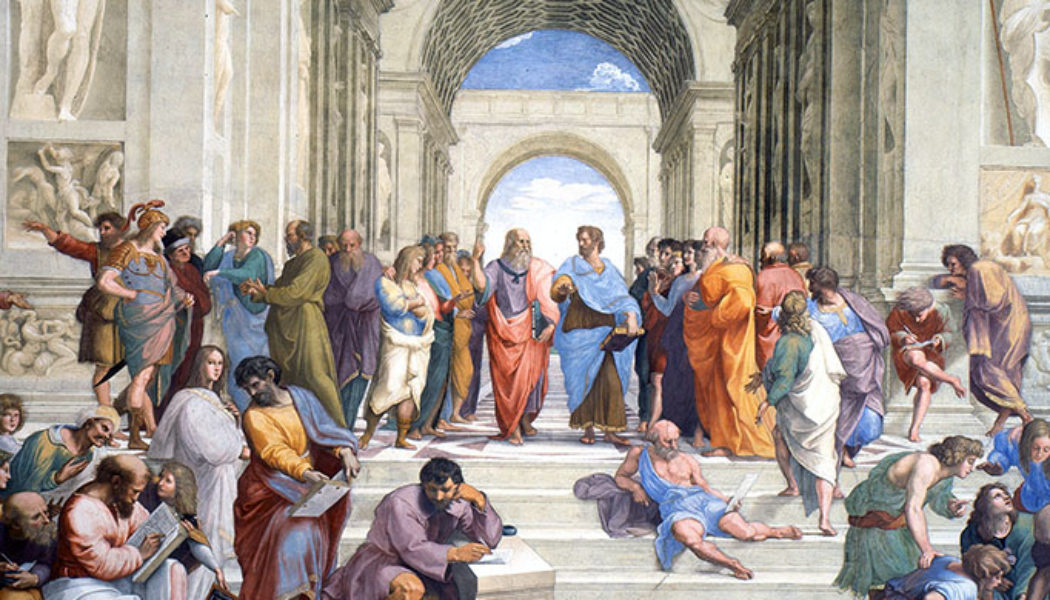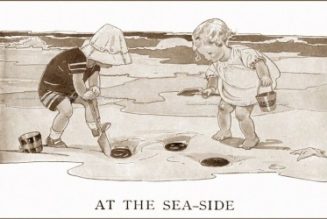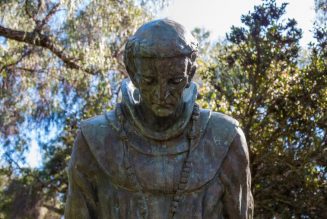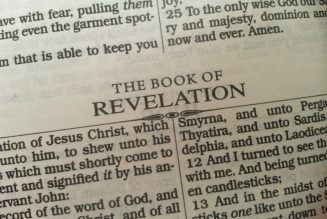
The way to combat faulty foundations is to abandon them and return to good foundations.
For people of faith, there may be few more intimidating places than the classroom of a secular and possibly anti-religious philosophy professor. For those attending college, whether it be a secular or religious institution, you may find yourself in this situation. Thankfully, you do not have to give up your Catholic upbringing in order to pass Introduction to Philosophy. As a matter of fact, it was while studying philosophy for my second bachelor’s degree that I came into the Catholic Church.
When I began work on my BA in philosophy at a secular institution, where I don’t think a single one of my professors was a Christian, let alone Catholic, though I knew of at least two professors who were ex-Catholic, I was on my way to reverting from Protestantism to the Catholic faith of my youth. My studies, guided by some extra reading I was doing on the side, helped convince me of my choice to rejoin the Catholic Church.
When entering into any subject, it is important to keep in mind the animating principles of that endeavor. What is it that drives philosophy? What is its foundation? The word itself comes from the Greek words for love and wisdom, and so it means the love of wisdom. A philosopher is not necessarily one who claims to be wise, but is most importantly someone who desires wisdom. This desire for wisdom begins with a sense of wonder.
Philosophy and what we now call science begin when we realize we cannot explain something that we observe. Something is happening, something is changing, something is staying the same, but what exactly is remaining, changing, and why? Wonder recognizes that we stand before a mystery but is firmly convinced that truth can be discovered. This wonder, since it is an animating foundation of philosophy, must be present in all true philosophy.
In my undergraduate studies, I could tell that many of the students and some of the professors had no sense of wonder. Philosophy, to them, was a bat for swinging at ideas they didn’t like. Cynicism and agnosticism appeared to be a foundational assumption for some, as if the job of philosophy was to explain away reality rather than explain it. The fundamental attitude should not be skepticism, but curiosity — not doubt, but wonder.
The lack of wonder found after the Middle Ages stems from the time when, instead of standing on the shoulders of giants, thinkers became giant slayers so they could make a “fresh start.” I have not encountered a modern-based philosopher or professor of philosophy who can accurately describe the Thomistic ideas of God and man. Rather than learning from the great thinkers of the past, they ignored, forgot, or misunderstood them and began with doubt and thinking about thinking instead of beginning with wonder about reality itself.
If a school of philosophy lacks wonder, it is not true philosophy. Catholic philosophy, I have found, always seems to be animated by wonder. The way to combat faulty foundations is to abandon them and return to good foundations. So, here are some books that helped me become more sure of the truth of Catholicism and Catholic philosophy even in the midst of a secular philosophy program.
The errors of these modern philosophers are explained and critiqued well in two books that I would recommend: Ten Philosophical Mistakes by Mortimer Adler and The Unity of Philosophical Experience by Etienne Gilson. These books helped me to understand what I could sense, that there was something fundamentally wrong with most of the philosophy I was learning.
Both of those authors are also helpful for learning good philosophy. It is not enough to know what is wrong with bad philosophy; it is more important to learn good philosophy. Gilson and Adler were both key to keeping me on solid philosophical ground. Other authors who pull from the common-sense, wonder-based Aristotelian/Thomistic tradition (i.e., the perennial philosophy of Aristotle and St. Thomas Aquinas) include Jacques Maritain, Peter Kreeft, and Josef Pieper. As precursors to these authors, I read a lot of C.S. Lewis and G.K. Chesterton. Since undergrad, I found Robert Delfino and Matt Fradd have co-authored a book on the five proofs for the existence of God from the Summa Theologiae of St. Thomas Aquinas, which also serves as an introduction to Thomistic metaphysics. I myself have tried my hand at a very brief and informal introduction to philosophy to help Catholics recognize their treasure of wisdom.
I didn’t try to go toe-to-toe with my professors, especially not in the classroom, and I don’t recommend it. I studied hard, got good grades, but heavily supplemented my studies with the beauty I was finding in my own reading. My attitude was not so much that I was going to disprove my professors so I can keep my faith, but rather that I wanted to test the Catholic viewpoint to see if it could stand up to other perspectives. It passed with flying colors, and I learned it better as a result.
Join Our Telegram Group : Salvation & Prosperity









